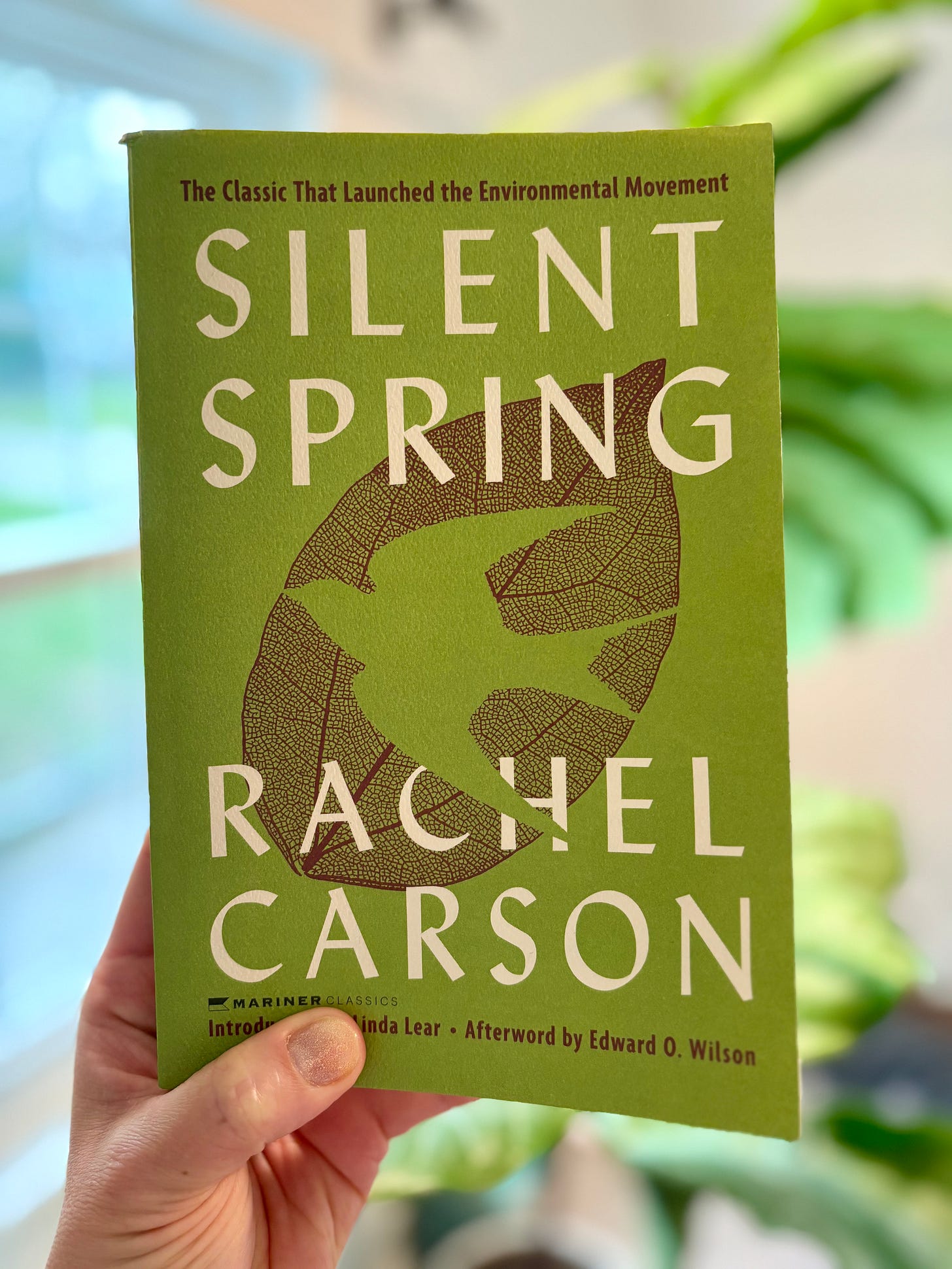Celebrate the Earth with Plant-Forward Eating
A win for us and the planet; plus cookbook recommendations
Happy Earth Day!
In terms of food, what is good for the Earth is good for us. As we think about eating more plants and less meat, I think about my embrace of a plant-forward diet. At its essence, a plant-forward way of eating is just a big embrace of more plants in your meals, without any restrictions or labels. Put simply, more plants on the plate are good!
Reasons to eat more plants:
Good for our guts — those healthy bacteria love to feed on fiber from plants.
Good for our health — decreases our risk for chronic diseases like heart disease.
More plant-based protein (and less meat) is good for our planet.
Choosing to eat more plants leads to positive health and environmental change.
There isn’t a universal definition of “plant-forward,” but this one by Menus of Change, a collaboration between the Culinary Institute of America and Harvard School of Public Health, encapsulates well the spirit of what it is, and why it is a compelling dietary choice:
Plant-Forward: A style of cooking and eating that emphasizes and celebrates, but is not limited to, plant-based foods—including fruits and vegetables (produce); whole grains; beans, other legumes (pulses) and soy foods; nuts and seeds; plant oils; and herbs and spices—and that reflects evidence-based principles of health and sustainability.
Ways to eat a more plant-forward diet:
Move the vegetables to the center of the plate. Think stir-fries, big salads, and pastas stuffed with whole grains and vegetables where the meat (if included) is the accent.
Choose to eat vegetarian for one whole day each week, or at least one vegetarian dinner a week.
Utilize the Harvard Health Eating Plate and make vegetables and fruits half of your plate.
Here are recipes from the CIA Plant-Forward Kitchen, including a recipe (with a great video) for a Mediterranean Falafel Bowl.
What is the Planetary Health Diet?
The planetary health diet is a plant-forward way of eating that can be best described or best visualized as a pie chart or on a plate: half of the plate is full of fruits, vegetables and nuts and the other half consists of primarily whole grains, plant proteins (beans, lentils, pulses), unsaturated fats (healthy plant oils), and modest amounts of meat and dairy.

The planetary health diet comes out of the EAT-Lancet Commission, which conducted a scientific review studying the human diet, growing population health, and environmental sustainability. Their leading question: “Can we feed a future population of 10 billion people a healthy diet within planetary boundaries?”
A few findings from the EAT-Lancet Commission Report:
Today, agriculture occupies nearly 40% of global land, making agroecosystems the largest terrestrial ecosystems on the planet. Food production is responsible for up to 30% of global greenhouse gas emissions and 70% of freshwater use. Land conversion for food production is the single most important driver of biodiversity loss.
Shifting from unhealthy diets to the planetary health diet can prevent 11 million premature adult deaths per year and drive the transition toward a sustainable global food system by 2050 that ensures healthy food for all within planetary boundaries.
So much more can be found in their consumer report here.
Norwegian chef Lise Finckenhagen has put together a Weekly Planetary Health Menu, with Weekly Shopping List and additional recipes here.
Plant-forward, Vegetarian and Vegan Cookbooks
There are so, so, so many wonderful cookbooks that fall into these categories. Here are just a few that I’ve been reaching for lately.
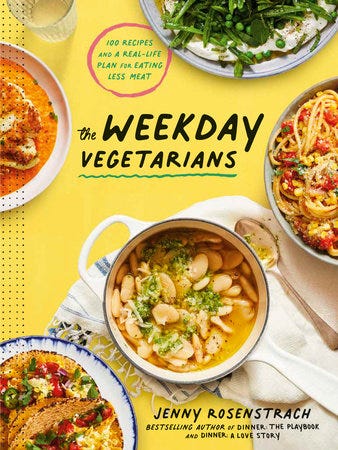
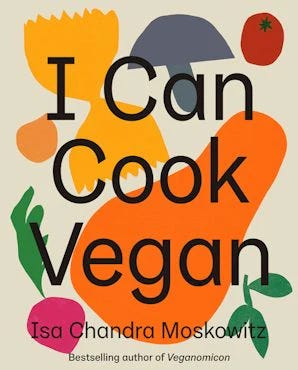
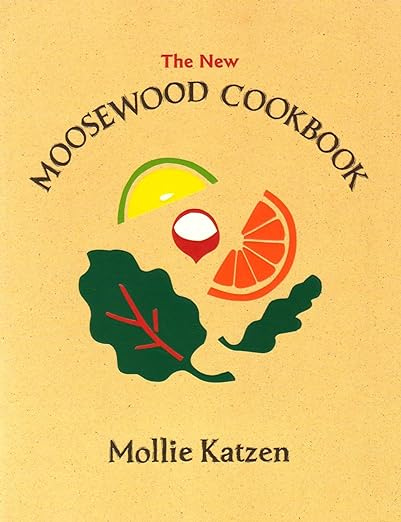
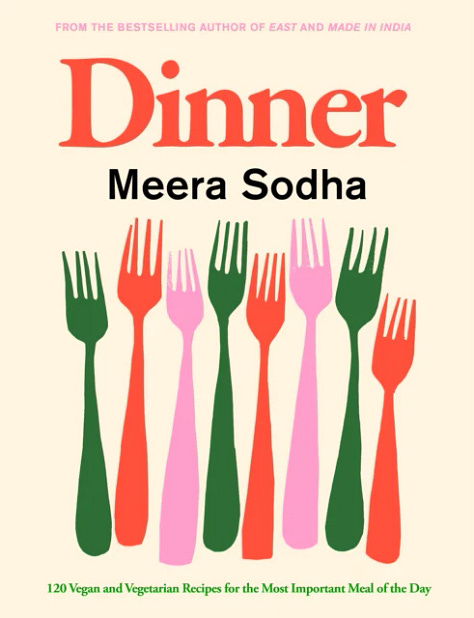
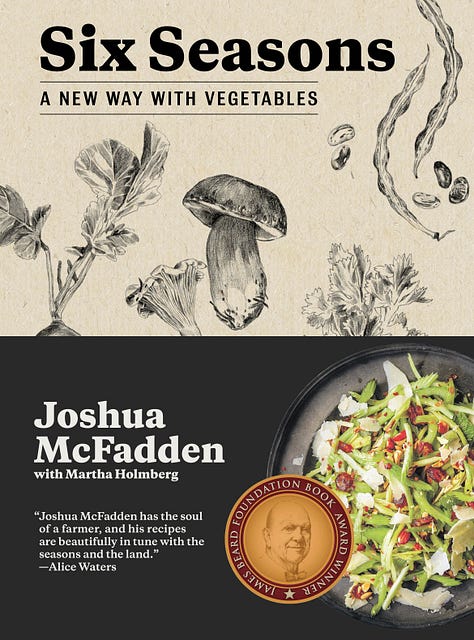
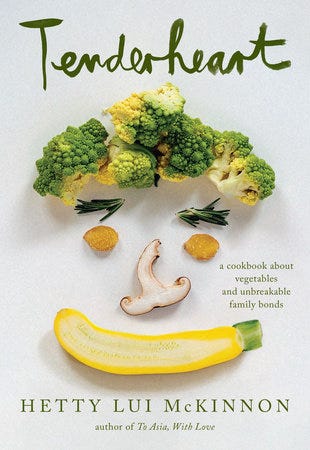
Vegetarian and Vegan
Mastering the Art of Plant-based Cooking: Vegan Recipes, Tips, and Techniques by Joe Yonan. This new cookbook made a splash last year and ended up on several best cookbook lists. It is huge, and covers everything you can think you want to cook with inspiration from many different cuisines.
Dinner: 120 Vegan and Vegetarian Recipes for the Most Important Meal of the Day by Meera Sodha.
I Can Cook Vegan by Isa Chandra Moskowitz. So many good recipes here and an excellent resource for someone looking to cook more vegan food and doesn’t know where to start.
Tenderheart: A Cookbook About Vegetables and Unbreakable Family Bonds by Hetty Lui McKinnon. Each chapter features a vegetable, 22 in all. Everything from Asian Greens, to Brussels Sprouts, to Sweet Potato and Zucchini. Even familiar favorites like Broccoli get a chapter, with delightfully unexpected dishes like Broccoli Forest Loaf and Charred Broccoli Rueben Salad.
Meatless: More than 200 of the Very Best Vegetarian Recipes from the Kitchens of Martha Stewart Living. Classic Martha Stewart!
Plenty More: Vibrant Vegetable Recipes from London's Ottolenghi by Yotam Ottolenghi.
Plant-Forward
The Weekday Vegetarians: 100 Recipes and a Real-Life Plan for Eating Less Meat (and the sequel The Weekday Vegetarians: Get Simple). This was one of the first cookbooks that came to mind when starting to write this newsletter. The whole premise is embracing a more plant-forward diet, while not feeling obligated to completely give up meat.
Six Seasons: A New Way with Vegetables by Josh McFadden. This cookbook is just so lovely in its embrace of vegetables.
Health Nut: A Feel-Good Cookbook by Jess Damuck. I’ve talked about this cookbook before and it fits perfectly in this category — there’s even a chapter titled Plant-Forward Main Dishes!
Classics
Moosewood Cookbook by Mollie Katzen. And of course all of the cookbooks in the Moosewood Collection!
Madhur Jaffrey’s World Vegetarian: More than 650 (!!) Meatless Recipes from Around the Globe.
The New Vegetarian Cooking for Everyone by Deborah Madison. She talks with The Kitchn about what goes into revising a classic.
Speaking of Classics…..
I stopped in a bookstore the other day and Rachel Carson’s Silent Spring was on display with all of the other Earth Day-related books. This book was mentioned in an article I read recently, which reminded me that this is an omission in my reading history that I’m looking forward to fixing. We owe a lot to Rachel Carson’s work, as expressed best by this quote from Margaret Atwood on the back cover: “Rachel Carson is a pivotal figure of the twentieth century…people who thought one way before her essential 1962 book Silent Spring thought another way after it.”
Thoughtful Food Nutrition is a consultancy that specializes in nutrition counseling and food policy consulting. Appointments and more at www.thoughtfulfoodnutrition.com.




